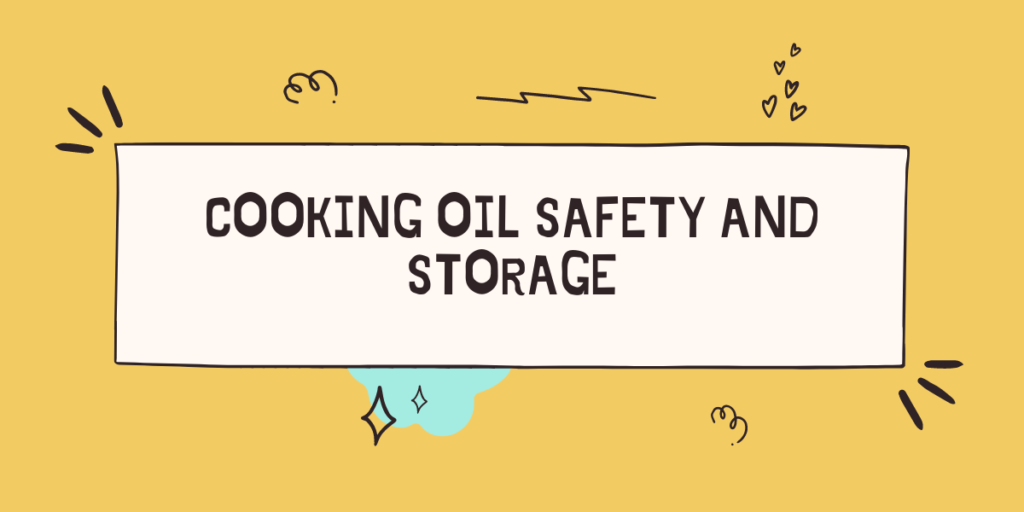In the culinary world, cooking oil is a fundamental ingredient that plays a pivotal role in enhancing the flavor and texture of dishes. For bulk buyers, whether they are restaurant owners, food manufacturers, or caterers, securing a reliable source from Canola Oil Bulk Suppliers is essential. However, ensuring the safety and quality of the cooking oil you purchase is equally crucial. In this blog post, we’ll explore essential cooking oil safety and storage tips for bulk buyers, with a focus on how these essential cooking with the services provided by Cooking Oil Collection Services.
Cooking Oil Collection Services: A Sustainability Solution
Before diving into safety and storage, let’s briefly touch on Cooking Oil Collection Services and their environmental significance. These services offer an eco-friendly solution for the disposal of used cooking oil. Instead of discarding it improperly, businesses can have their used cooking oil collected and repurposed. This not only reduces waste but also contributes to the production of biodiesel, a cleaner and more sustainable fuel source.
Cooking Oil Safety Tips
- Sources Reliable Suppliers:
Start with a trusted Canola Oil Bulk Supplier to ensure the quality of the oil from the beginning. Look for suppliers with a reputation for consistency and adherence to safety standards.
- Check for Certification:
Verify that the canola oil you purchase carries relevant certifications, such as those indicating compliance with food safety and quality standards.
- Examine Packaging:
Inspect the packaging for any damage or leaks before accepting delivery. Damaged packaging can compromise the oil’s quality and safety.
- Store in a Cool, Dark Place:
Canola oil is susceptible to deterioration from heat, light, and oxygen. Store it in a cool, dark place place to extend its shelf life.
- Use Proper Containers:
If transferring oil from the original container, choose food-grade containers designed for oil storage. Avoid containers that may react with the oil.
- Implement FIFO (First-In, First-Out):
Follow the FIFO principle to ensure that older batches of oil are used before newer ones, minimizing the risk of spoilage.
Cooking Oil Storage Tips:
- Maintain a Consistent Temperature:
Fluctuating temperatures can lead to oil spoilage. Aim to keep the storage area at a stable temperature, ideally around 50 F (10 C)
- Protect from Light:
Exposure to light can cause canola oil to become rancid. Use opaque or tinted containers, or store oil in a dark cupboard or pantry.
- Seal Containers Tightly:
Ensure that oil containers are tightly sealed to prevent oxygen from entering. Oxygen can cause oxidation and spoil the oil.
- Prevent Cross-Contamination:
Avoid using the same containers or utensils for different types to prevent flavor transfer. Store oils separately to maintain their unique qualities.
- Regularly Inspect for Spoilage:
Check for signs of spoilage, such as off odors, strange flavors, or changes in color and consistency. If any of these are detected, discard the oil.
- Use a Spill Containment System:
For bulk buyers dealing with large quantities of oil, consider installing a spill containment system to prevent accidental spills and environmental damage.
Community with Cooking Oil Collection Services
Bulk buyers often generate significant quantities of used cooking oil. This is where Cooking Oil Collection Services come into play. By integrating these services into your sustainability play, you not only contribute to a greener environment but also enhance safety in your kitchen:
- Safe Disposal: Cooking Oil Collection Services ensure the safe and environmentally responsible disposal of used oil, reducing the risk of accidents and spills on your premises.
- Regulatory Compliance: Many regions have strict regulations governing the disposal of used cooking oil. Utilizing these services can help you stay compliant with local news.
- Reduces Liability: By outsourcing used oil collection to professionals, you minimize the liability associated with oil disposal accidents and environmental damage.
In conclusion, as a bulk buyer, maintaining the safety and quality of your cooking oil is essential for the success of your culinary endeavors. Partnering with reliable Canola Oil Bulk Suppliers is the first step, followed by adopting proper storage practices. Integrating Cooking Oil Collection Services into your business strategy not only enhances sustainability but also contributes to a safer and more environmentally responsible kitchen. By following these guidelines and leveraging the services available, you can ensure that your cooking oil remains a valuable asset in your culinary journey.
